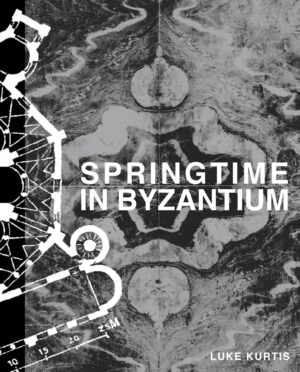Can ChatGPT interpret poetry?

I like to ask ChatGPT to interpret my poems, curious about what meaning it might pull out. Sometimes I’ve even given it abstract and surreal poems, expecting it to hallucinate something totally off the wall. But, virtually every time, it comes back with an impressive interpretation.
I find this reassuring. It gives me confidence to know that if an AI can pull meaning out of a poem that aligns with my intentions as the poet, then I must have successfully imbued that meaning within the text in the first place. And I know it’s not merely copying what someone else has said because typically, I’ve shown it poems that have yet to be published but never even seen by anyone other than me.
So, asking ChatGPT for its thoughts on a published poem you may have read and sharing that with you would be interesting. I chose “sutras,” published in Amethyst Review. Here’s what it had to say, unedited.
The poem, titled “sutras,” takes us on a journey through the experience of the poet in Tokyo, exploring themes of cultural differences, uncertainty, and the quest for belonging. The speaker’s encounter with a hushed temple unveils a profound moment of introspection, blurring the lines between cultural norms and personal understanding. Through a delicate balance of stylistic traits and literary devices, the poet masterfully captures the universal human experience of feeling both connected and disconnected in a foreign land.
One of the primary themes of the poem is cultural ambiguity and the challenge of navigating unfamiliar territory. The poet’s walks and wanderings in Tokyo serve as a metaphor for the broader human condition: the search for meaning and connection amidst the unknown. The temple represents a cultural sanctuary, and the speaker’s hesitation to enter reflects the uncertainty of whether they are welcome or if they are inadvertently intruding. The poet highlights the complexity of cultural norms, particularly in Japan, where unspoken cues can often be more telling than explicit signs.
Stylistically, the poem exhibits a gentle and contemplative tone, mirroring the protagonist’s reflective state of mind. The use of short lines and enjambment creates a sense of movement and fluidity, much like the speaker’s wandering through Tokyo. The minimalist language allows the reader to focus on the subtleties of the experience, reinforcing the theme of uncertainty and ambiguity.
The poet incorporates various literary devices that enrich the narrative. Imagery is skillfully used to paint a vivid picture of the temple, garden, and its surroundings. The “wooden floor soft and smooth, soothing to my feet” evokes a sense of comfort and tranquility. Additionally, the “light dancing like petals in a breeze” illustrates the serenity and beauty of the place. The juxtaposition of the red cover of the sacred text and the “soft grass in spring” under the tatami further underscores the poet’s keen observations and appreciation for details.
The encounter with the monk emphasizes the theme of cultural miscommunication. The mutual nod and bow demonstrate an attempt at connection, but the uncertainty remains. The speaker’s act of taking the sacred text, albeit inadvertently, serves as a metaphor for the struggle of comprehending and respecting cultural boundaries in a foreign land. The act of theft is unintentional, born out of misunderstanding rather than malice, showing the vulnerability of humans in navigating cultural nuances.
The overall meaning of the poem centers on the human condition of feeling lost, both physically and metaphorically, in unfamiliar territory. The journey of the speaker in Tokyo mirrors the journey of humanity, searching for a sense of belonging and purpose in a world that may seem unfamiliar and even unwelcoming at times. The poem serves as a poignant reminder of the importance of empathy and understanding in bridging cultural gaps and finding common ground amidst diverse experiences.
In conclusion, “sutras” is a beautifully crafted poem that delves into the complexities of cultural differences and the human quest for belonging. Through its themes, stylistic traits, and literary devices, the poem offers a profound reflection on the challenges and opportunities presented by our encounters with foreign cultures. It encourages readers to appreciate the subtleties of cultural interactions, fostering a deeper sense of empathy and connection in a world where understanding and acceptance are paramount.

Apart from some minor details that seem slightly off, it did a great job. It captured the text’s overall idea, including describing certain stylistic traits that support what I was trying to communicate.
Using ChatGPT this way gives me confidence in my writing. It helps me fight that voice inside that second-guesses everything. Of course, it’s important to remember there’s still a human touch, a delicate nuance that AI doesn’t bring to the table. At least not yet.
I have noticed that ChatGPT and similar tools tend to flatter you, deserved or not. While it stated “sutras” is a beautifully crafted poem, it will likely say that about any poem you throw at it. This tendency towards positivity might seem harmless, but as a creative tool, it could also be a crutch. It’s essential to seek diverse perspectives and constructive criticism. Sometimes the best work results from honest if difficult-to-hear truths.
But still, AI has quickly become a valuable tool for me. As long as I’m mindful of its pitfalls, I’m excited to discover even more ways it can support my work.
What do you think about ChatGPT’s interpretation of my poem? Does it align with your reading? Did it miss anything? And in what ways do you use AI tools?
Support independent and experimental work
If you like what we do, help keep it going:
🛍️ Make a purchase from our shop
📬 Join our newsletter for occasional updates
✉️ Get in touch if you have questions, comments, ideas, or pitches






